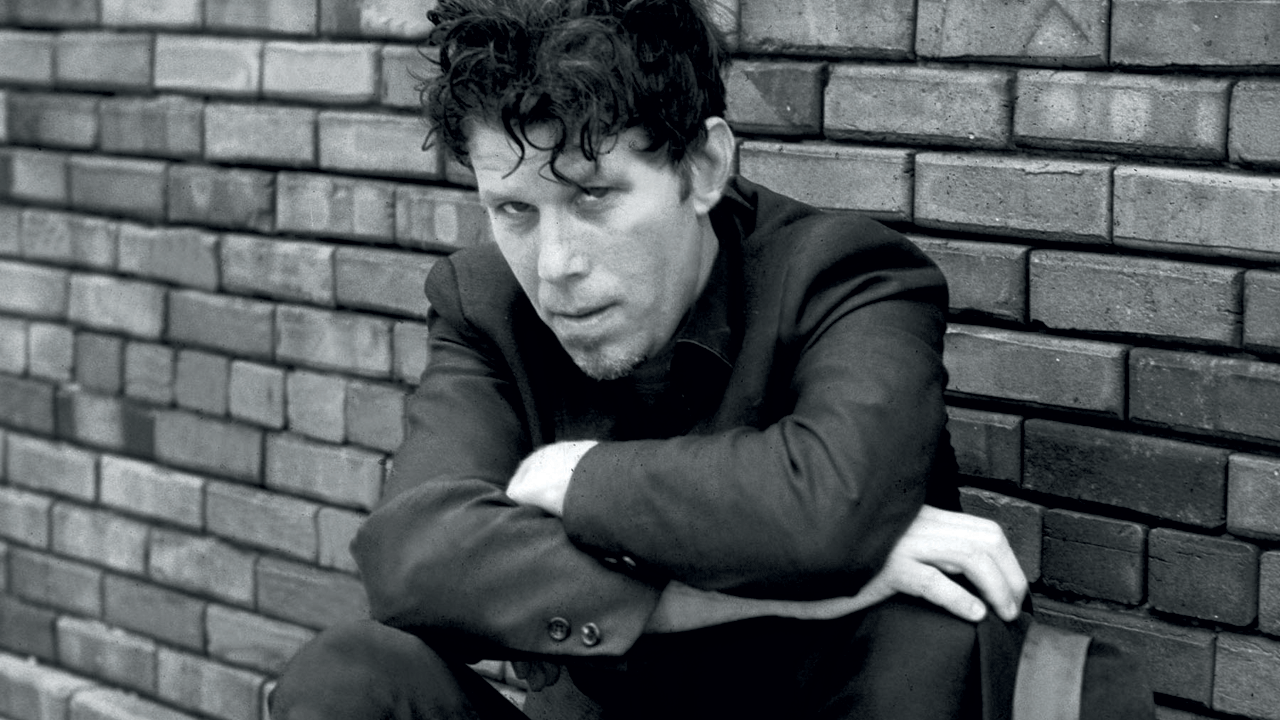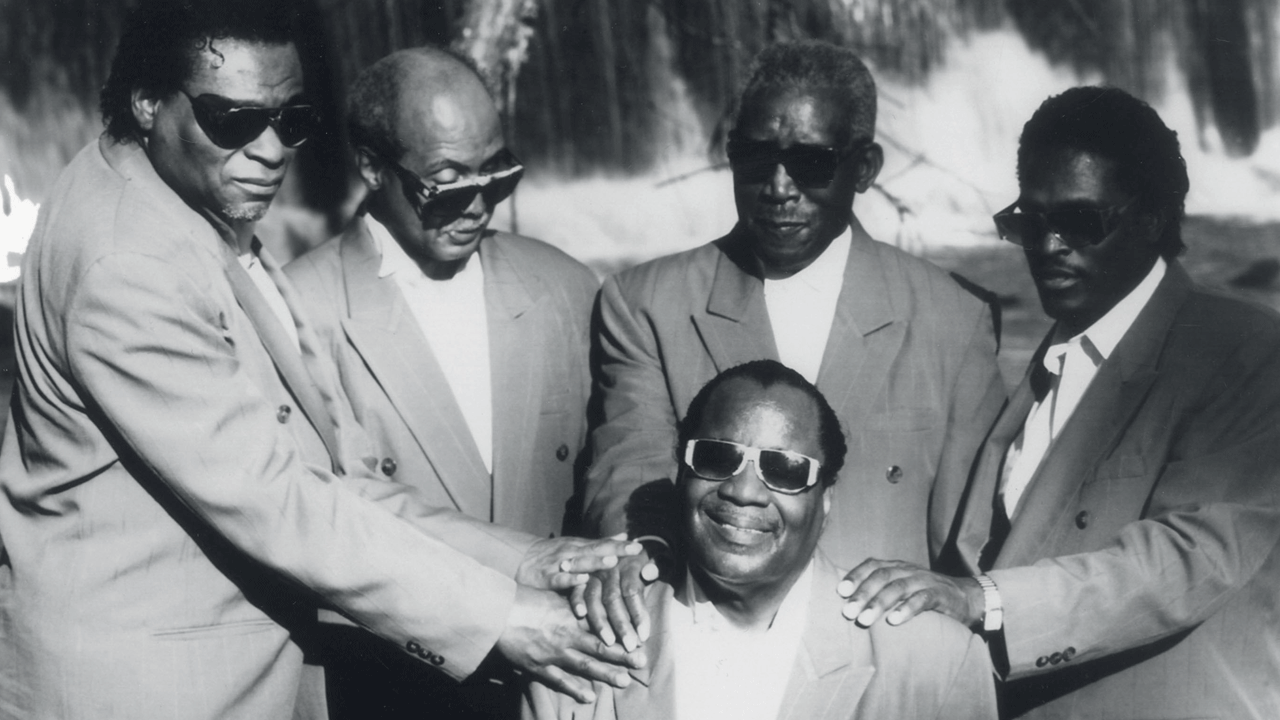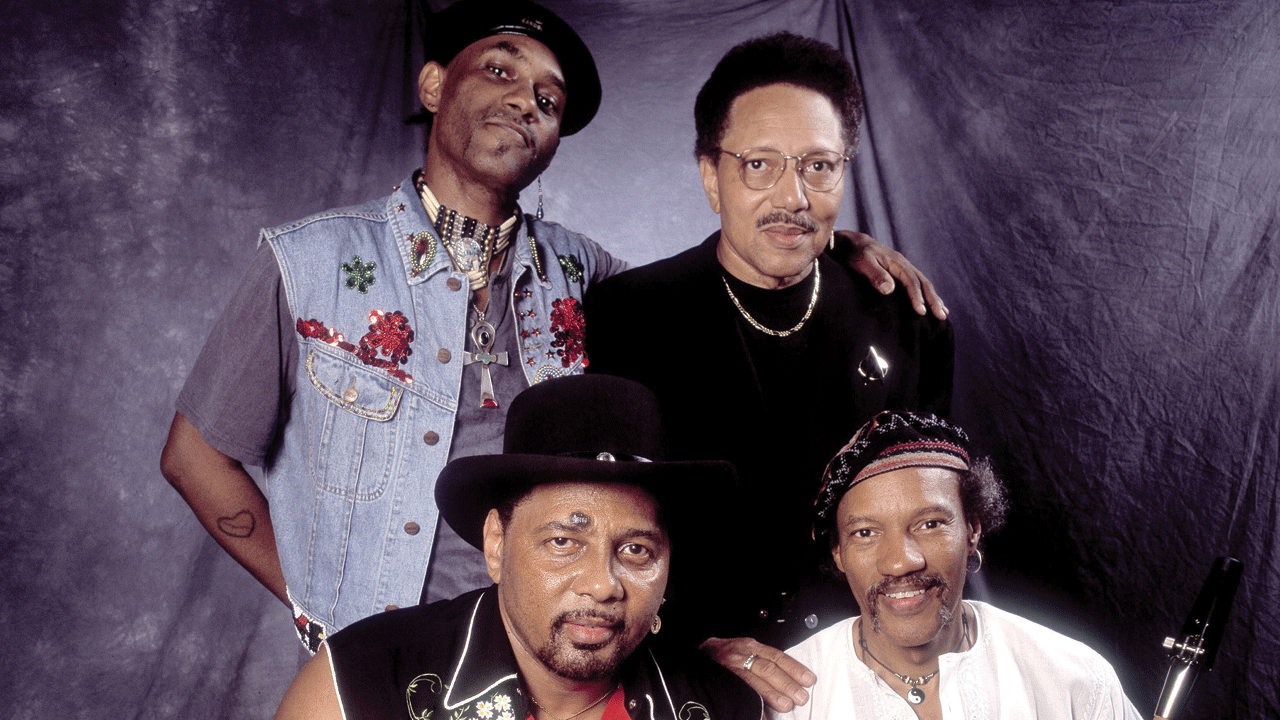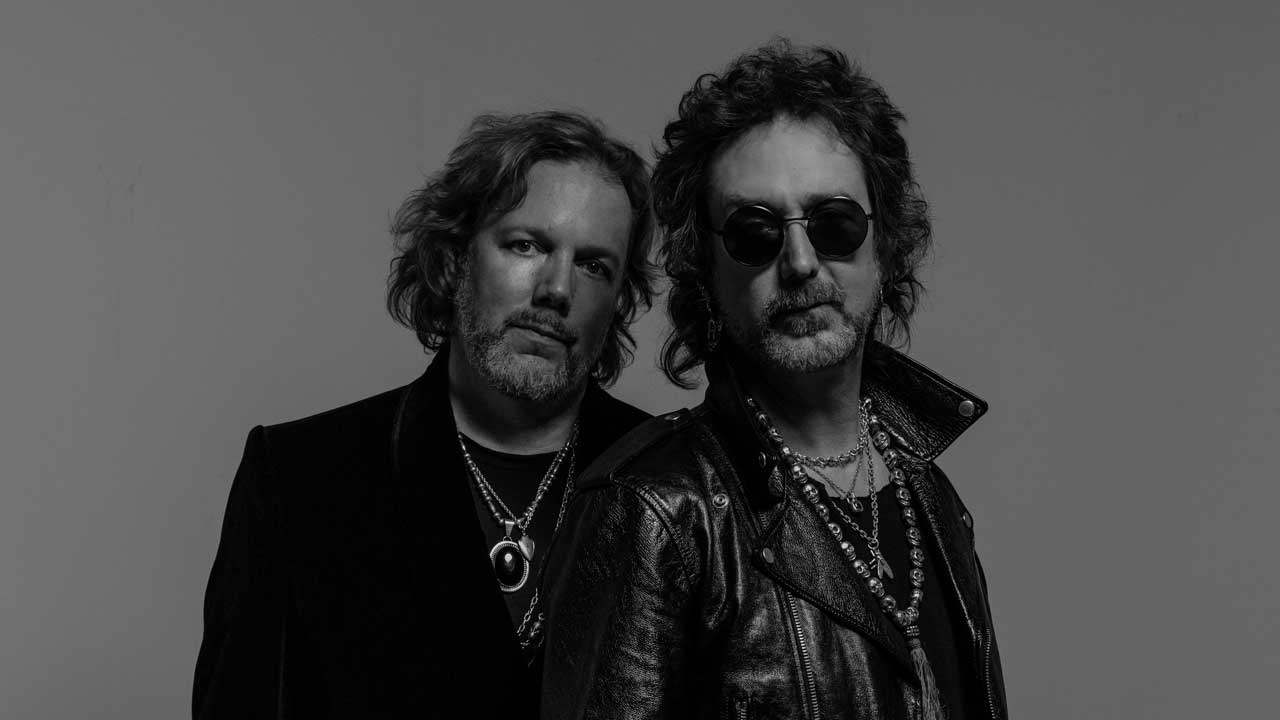Cuttin’ Heads: Way Down In The Hole
One great song. Five great versions. Which is best?

It was right down to The Wire when it came to picking the ultimate version of this devilishly brilliant song.
From 2002 to 2008, The Wire, HBO’s gritty crime drama set on the mean streets of Baltimore, was one of the greatest, most complex and thought-provoking programmes on television. And with each individual series providing an intricate study of a different corrupt section of the city’s society – drug dealing gangs, seaport workers, shady members of the government, the school system and the newspaper trade – an inspired idea on the part of the producers was to have a different artist perform the theme song, Tom Waits’ sublime, gospel inspired Way Down In The Hole, for each season.
In doing so, they provided a thread connecting the whole epic saga together, while giving each new run a distinct personality of its own. So we have five unique takes arriving in rapid succession, and, unusually enough, they’re almost all great in their own way./o:p
<!–[if gte mso 9]>
0 0 0
The choice of the song itself couldn’t have been more perfect. Waits has always been a master of vivid character creation and theatrical musicality, from the piano-led, double-vision bar room romance of his earliest work on 1973’s Closing Time and the following year’s The Heart Of Saturday Night to the move into bold avant-garde abstraction with 1983’s Swordfishtrombones, right up to his latest, 2011’s Bad As Me.
It’s music set firmly in the American tradition yet exists entirely in its own interpretation of its homeland. And given Waits’ impressive acting turns in Jim Jarmusch’s Down By Law and Francis Ford Coppola’s Bram Stoker’s Dracula, and the fact that Way Down In The Hole first appeared on his 1987 album Franks Wild Years, which became the basis of a play of the same name, the track lent itself to drama long before The Wire came knocking./o:p
Sign up below to get the latest from Classic Rock, plus exclusive special offers, direct to your inbox!
<!–[if gte mso 9]>
0 0 0
In it, we find Waits’ character battling to keep the devil at bay, making sure the demon stays ‘way down in the hole’. In this none-more-pessimistic take on gospel tradition, Waits’ stark, unpolished delivery, full of smoke, madness and regret, suggests it’s a battle he’s on the verge of losing, a deeply flawed man trying to be a better person, searching for spirituality, but consistently dragged down by a tough life and his own inner darkness.
That it’s simply backed with a feline double bass line, shaker percussion and a jarring, skewed guitar riff adds to its power. It’s pure dockside blue-collar grit, and given the series of bad decisions made by the protagonists in The Wire, it’s a pretty clear statement of the struggles taking place on the streets./o:p

Above: The Blind Boys Of Alabama.
However, the original Waits version didn’t actually appear until season two, leaving The Blind Boys Of Alabama to introduce the show to worldwide audiences with their own take on the song in season one. The Grammy-winning gospel superstars and civil rights leading lights have been singing from the hymn book since 1944, sticking firmly to spiritual music even as popular tastes moved more towards soul and R&B in the 60s and 70s.
Their conviction paid off, and when they appeared in the multi-award-winning The Gospel At Colonus in the 80s, they reached bigger – and more mainstream – audiences han ever before, leading them to start experimenting organically with other genres. In 2001, they recorded Spirit Of A Century, which featured, alongside traditional songs, covers of Ben Harper’s Give A Man A Home, The Rolling Stones’ I Just Want To See His Face, and both Jesus Gonna Be Here and Way Down In The Hole by Tom Waits. The record was a massive hit, winning a Grammy for Best Traditional Soul Gospel Album, and it was this version that the producers of The Wire first fell for.
It’s easy to hear why. Substantially sweeter than the Waits version – after all, Waits’ atonal gargle of a growl is very much an acquired taste – The Blind Boys provide a more soulful and a more positive experience. Having the great Charlie Musselwhite on hand to provide a beautifully dusky harmonica line doesn’t hurt matters either, providing a bedrock for a slinky rhythm section and razor-sharp electric guitar riff, which combined with Jimmy Carter’s rich vocals, make this as focussed and watertight as Waits’ version is ragged. Full of faith, hope and testifying, this is the bright day of determination to Waits’ dark night of the soul.
The Neville Brothers step up for season three, and they bring a hot New Orleans flavour to the cold streets of Baltimore with the funkiest interpretation of the song yet. An elephantine organ line thumps things along, while addictive Mardi Gras bottles-and-cans percussion injects an air of wanton celebration that has little to do with spiritual searching and substantially more to do with earthly pleasures. Add a sultry sax section and a super-soulful vocal that threatens to topple even Stevie Wonder’s position at the top of the R&B heap, and you’ve got a version that displays its heavyweight riches without an ounce of modesty.
As such, it fits into the season’s theme of corruption in the halls of governmental power as snugly as a financial bung to a dodgy MP.
<!–[if gte mso 9]>
0 0 0
It was all change again for season four, and DoMaJe couldn’t have been closer to the subject matter. Made up of local Baltimore teenagers Ivan Ashford, Markel Steele, Cameron Brown, Tariq Al-Sabir and Avery Bargasse, they gave voice to the city’s younger generation, adding an eerie authenticity to their take. Nothing has been heard from them since the show ended, but their version, coming from a modern R&B direction, is a breath of fresh air among the old war horses soundtracking the rest of the show.
The guitar solo backing it is showier than the previous years, and deliberately clashes with the deceptively sweet young vocals, while there are splutters of scattergun hip-hop (a street-corner chant of ‘keep him in the trash, yo’ bursts over the song at irregular intervals) to bring things bang up to date in line with the season’s main characters. It’s unsettling, because by now, we know that things are unlikely to end well for the young souls on screen.
The final word, fittingly, goes to Steve Earle in season five. The Texan country, folk and blues-rock singer-songwriter had been a regular guest star in The Wire, appearing as Walon, an HIV positive recovering drug addict and Narcotics Anonymous counsellor attempting to help younger men in danger of following him down the same path.
Earle has had his own well-documented problems with substance abuse over the years, and with this personal touch he brought subtlety, authenticity and skilfully unsentimental emotion to the role that exposed him to a whole new generation of fans. His version is pure modern country, the twang of his acoustic guitar mimicking and complementing his rolling Texas accent. It’s easy to imagine that, for him, the demons to be sent below ground are drink and drugs, and the pacey percussion has an urgency that suggests taking a single moment’s lapse could spell spiritual, personal and physical disaster./o:p

Above: The Neville Brothers also covered Waits’ classic.
The debate over which is the best version of the song has been raging since the show ended in 2008 – you just have to scroll through the comments under the YouTube videos of each band’s interpretation to realise how quickly passions can boil over, especially from the anonymous safety of a computer keyboard. And each clearly has its merits, the quality remaining consistently high.
DoMaJe’s is probably the weakest, mainly because they lack the decades of life experience all four other acts benefit from, but their youthful self-assurance and swagger means that they by no means let themselves down. Earle’s version nudges in ahead of them, his fearless, deeply honest appropriation of the song only slightly marred by a too-slick production job that cleans some of the necessary dirt from under the fingernails and takes away a little of the impact it could have had.
So that leaves it down to The Neville Brothers, The Blind Boys Of Alabama and the Tom Waits original, which is where things get trickier. Each one is exemplary, and so different to its siblings in the other seasons that choosing the best almost depends on the mood of the listener on the day in question. Feeling introspective and thoughtful? Waits is your man. Full of the joys of spring? The Blind Boys Of Alabama are on hand to turn up the positivity. All set to throw a midsummer party? The Neville Brothers will raise the heat.
So, as hard as it is to pick a clear winner, The Neville Brothers take bronze with honours for their Way Down In The Hole, purely because it’s almost too feel-good for a show as downbeat as The Wire. But don’t let that put you off giving it a spin all the way through the summer months, because it will bring a wonderful and desperately catchy carnival vibe to your own back garden.
<!–[if gte mso 9]>
0 0 0
Silver by a whisker goes to The Blind Boys Of Alabama. Their version appears to be the firm favourite among the internet warriors, and with good reason. It’s soul and gospel at its most unguarded and triumphant, taking Waits’ ambiguous character and giving it real, life-affirming faith and positivity. It’s the version you’ll hear the most often, and it played no small part in giving The Wire its original identity as a work of 2000s televisual genius. Their decades of skill and experience shine through as brightly as on any of their more traditional gospel recordings.
Which, perhaps controversially, leaves the gold for Tom Waits, ironically given the fact that few men have ever seemed so wilfully uninterested in accolades, adoration and mainstream approval.
There is an argument, from those that can’t get along with his barked, uneven vocal style, that Waits is a far better songwriter than singer. It’s the same accusation that’s been levelled at the nasal Bob Dylan since the 60s. But in reality, that grizzled, trembling, gloriously imperfect voice is his weapon, full of personality, empathy and pathos. There’s a truth to his recordings, even when he’s hiding behind the veil of a fictional creation, that is the mark of a real artist at the height of his powers.
In his Way Down In The Hole, redemption isn’t something that comes easy, simply through prayer or hope. For his protagonist, it’s as much a daily battle not to be dragged down into the fiery pit as it is to stay on the straight and narrow, which isn’t easy when the devil has all the best tunes.
And the best thing is, it’s not a one-off – his back catalogue is teeming with these beautifully crafted, perfectly strange Americana gems that may be embedded in the filth of the gutter, but they’re gleaming under the smoggy starlight. All you need to do is look for them./o:p
<!–[if gte mso 9]>
0 0 0
IT’S A WRAP
<!–[if gte mso 9]>
0 0 0
A lot of thought went into the music for The Wire, and each season ended on a montage showing us the plight of the main players as that part of the story ends. Each of these featured a perfectly pitched song: Step By Step by prolific country and folk singer-songwriter Jesse Winchester, Steve Earle’s I Feel Alright, Philly soul singer Solomon Burke’s take on Van Morrison’s Fast Train and Paul Weller’s version of Dr John’s I Walk On Gilded Splinters. The final season ends where we started, on an extended version of The Five Blind Boys Of Alabama’s Way Down In The Hole.
The whole lot was collected by Nonsuch Records for an original soundtrack, The Wire… And All The Pieces Matter, a perfect starting place for those gaining a musical education through the show./o:p
Emma has been writing about music for 25 years, and is a regular contributor to Classic Rock, Metal Hammer, Prog and Louder. During that time her words have also appeared in publications including Kerrang!, Melody Maker, Select, The Blues Magazine and many more. She is also a professional pedant and grammar nerd and has worked as a copy editor on everything from film titles through to high-end property magazines. In her spare time, when not at gigs, you’ll find her at her local stables hanging out with a bunch of extremely characterful horses.

